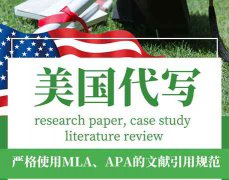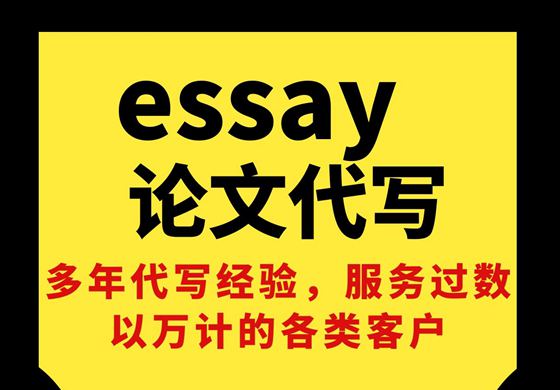发布时间:2020-11-18 热度:
英国、澳洲、美国留学生essay report dissertation论文报告个性化指导定制,论文查重校对,轻松拿高分读名校,顺利毕业进名企。提供 essay代写、代写essay、英文essay服务
相信Personal Statement大家都知道,但是Personal History Statement是什么?又该怎么写呢?Personal History Statement(下简称PHS),是专门为了学校增强学生的diversity(即种族、阶级、性别认同等多元性)而涉及的一篇文书,主要要求学生描述自己的社会背景,例如少数族裔背景等,外国申请人有时不需要写PHS。对于中国的申请人而言,貌似一部分博士学位只需要一篇SoP描述学术志趣,还有很多学位只需要一篇Personal Statement,这种PS大致有点类似于SoP和PHS的混合物。

Personal History Statement 范文
Personal History Statement 范文
I am impressed by the anomaly I have become: a female student of Mexican descent specializing in early modern European history. My undergraduate curriculum, which consisted mainly of English classes on Shakespeare or Milton and history courses on the Enlightenment and the Reformation, belied my ethnic origins. In fact, I can recall those uncomfortable moments in class when I would pause to glance around the room, realizing that I was the only brown student in a lecture hall of sixty or eighty students. Despite these occasional setbacks, I continued, headstrong, to pursue my passion for all things early modern. And I credit my academic success and accomplishments to my firm resolve to study only that which interested me and not that for which I was intended.
Yet there comes a time when an amateur scholar becomes a professional, at which point she must reconcile somehow her personal life and past with her new career and future. Finding myself on the verge of that transition, I feel it is an adequate time to reflect on how my scholarly interests intersect with my cultural upbringing. It is this odd but unique relationship between my identity as an historian of Renaissance Europe, my developing feminism, and my Mexican origins, that I want to discuss in this essay.
For reasons beyond my immediate grasp, I have always harbored special fondness for the period roughly described as the European Renaissance. I can recall briefly studying this era during a world history class in my elementary years. But any interests that may have been ignited were soon squelched in high school by the curriculum's necessary emphasis on American history, government and politics. My interests in early modern Europe did not truly blossom until I chanced upon a Western Civilization class my first year of college. Immediately, larger-than-life characters like Henry VIII and Leonardo da Vinci, and mass movements such as the Reformation and the French Revolution, took hold of my imagination in ways not anticipated. Though I tested my enthusiasm for history by exploring other epochs and geographies--even taking a course on race in Latin America--I always returned to that period which so held me spellbound.
Yet I had no one with which to discuss my newfound passion. Far too timid to talk to my professors about anything other than homework and writing assignments, I turned to my father, a history enthusiast like myself. But my father, who knew much about the Mexican history and important Latin American figures like Porfio Diaz and Che Guevara, could hardly be expected to sustain a conversation about my growing infatuation for the likes of Catherine de Medici and Louis VIV. Sadly, I experienced difficulty relating my background and identity to the people whose history I studied. My concept of history had always entailed a special, patriotic bond between the people of the past and their descendants. And I, the daughter of a Mexican immigrant, had no immediate ties to the fathers of Western civilization. Never had I even visited London, Rome, or Paris; only Mexico City, Guadalajara, and the tiny village where my father was born, Churintzio.
As my understanding the early modern period matured, however, my poetic concept of history changed dramatically. Indeed, there exists marked disparity between the history inculcated in grammar and high school which is heroic and uncritical and the analytical history university professors require students to practice. I eventually realized that I could study the early modern period from the position of a scholar interested in the ways that people of the past interacted with one another and reacted to the events that shaped their lives. In a sense, I assumed the role of an anthropologist who studies and dissects a foreign culture not only to better comprehend that culture and its symbols, but to gain unorthodox perspective on the world we inhabit today. Regardless of my ethnic background and origins, my analytical skills and flair for writing are strictly my own. However, my work ethic, I am proud to say, derives from my family, from a father who doggedly pursued the American dream, and from field-laboring grandparents.
Yet every academic needs his or he own niche, and I discovered mine when I stumbled upon the nascent but promising field of women's history. Though distanced somewhat from its original political agenda, feminism in academe remains strong and vibrant, evident especially in emerging works of history that not only detail women's historical struggles and realities, but forcefully argue that such experiences demand attention and incorporation into the historical record. My first encounter with this fascinating area of scholarship occurred during my junior year of college when I enrolled in a course on early modern women writers, and was inspired by stories of feminist scholars who were devoting their time and effort to rescue the works of women authors like Christine de Pizan and Elizabeth Cary from relegated obscurity. I soon realized that I had a real and honest investment in women's history and women's issues, for I, much like the women I studied, came from a culture where traditional patriarchal values were and continue to be upheld. Indeed, there is much to be said about the similarities between early modern patriarchy and contemporary Mexican machismo. Both rely on the hierarchy of the family to achieve social and moral stability. Both enforce the subordination of women's bodies through gendered codes of honor.
Perhaps the greatest testament of my promise as an historian of early modern women's history is my senior thesis, which earned me the 2003 Chancellor's Award for Excellence in Undergraduate Research. Entitled "Chaste, Silent, and Hungry: The Problem of Female Appetite in Early Modern England, 1550-1700," this project argued for the prevalence of a cultural discourse in early modern England concerned with regulating women's bodies and sexuality through regimented diet. A slew of conduct books which aggressively cautioned women against the dangers of food indulgence and satiation served as the foundation for this thesis. Unsurprisingly, at the heart of this study of the relationship between food mores and gender ideologies, was my own conviction in the power of culture and custom to inform women's experiences and self-perceptions.






